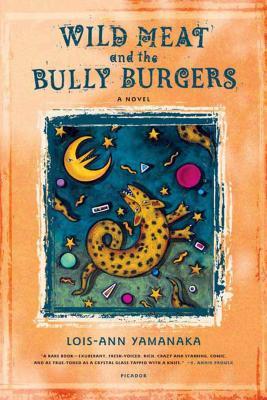Her name is Lovey Nariyoshi, and her Hawai'i is not the one of leis, pineapple, and Magnum P.I. In the blue collar town of Hilo, on the Big Island, Lovey and her eccentric Japanese-American family are at the margins of poverty, in the midst of a tropical paradise. With her endearing, effeminate best friend Jerry, Lovey suffers schoolyard bullies, class warfare, Singer sewing classes, and the surprisingly painful work of picking on a macadamia nut plantation, all while trying to find an identity of her own. At once a bitingly funny satire of haole happiness and a moving meditation on what is real, if ugly at times, but true, Wild Meat and the Bully Burgers crackles with the language of pidgin--Hawai'i Creole English--distinguishing one of the most vibrant voices in contemporary culture.
Stories from this enduring novel have been adapted into the film Fishbowl, by groundbreaking director Kayo Hatta.
Her name is Lovey Nariyoshi, and her Hawai'i is not the one of leis, pineapple, and Magnum P.I. In the blue collar town of Hilo, on the Big Island, Lovey and her eccentric Japanese-American family are at the margins of poverty, in the midst of a tropical paradise. With her endearing, effeminate best friend Jerry, Lovey suffers schoolyard bullies, class warfare, Singer sewing classes, and the surprisingly painful work of picking on a macadamia nut plantation, all while trying to find an identity of her own. At once a bitingly funny satire of haole happiness and a moving meditation on what is real, if ugly at times, but true, Wild Meat and the Bully Burgers crackles with the language of pidgin--Hawai'i Creole English--distinguishing one of the most vibrant voices in contemporary culture.
Stories from this enduring novel have been adapted into the film Fishbowl, by groundbreaking director Kayo Hatta.